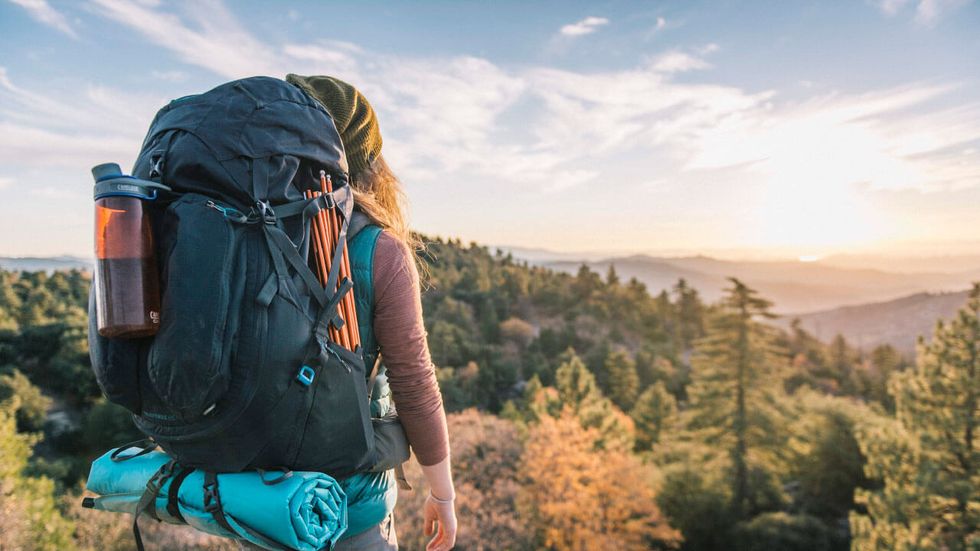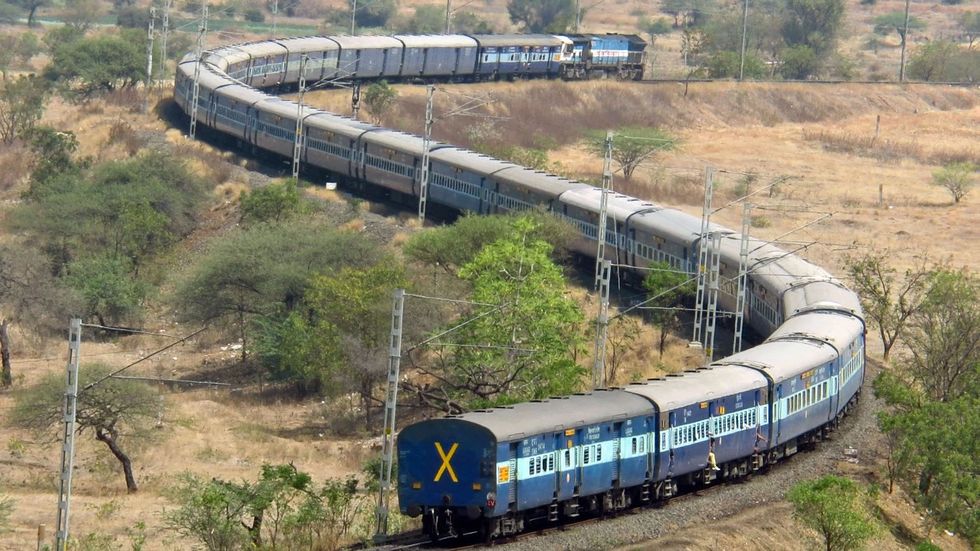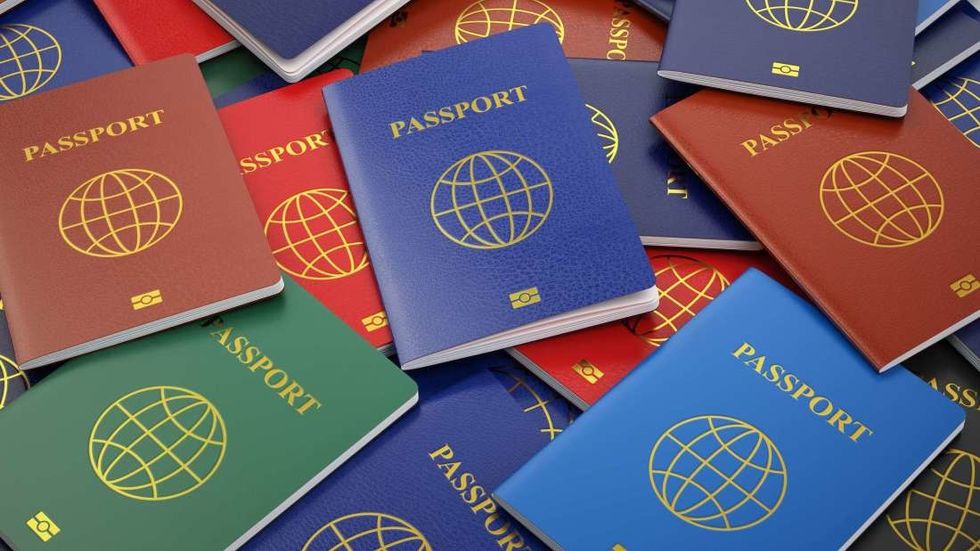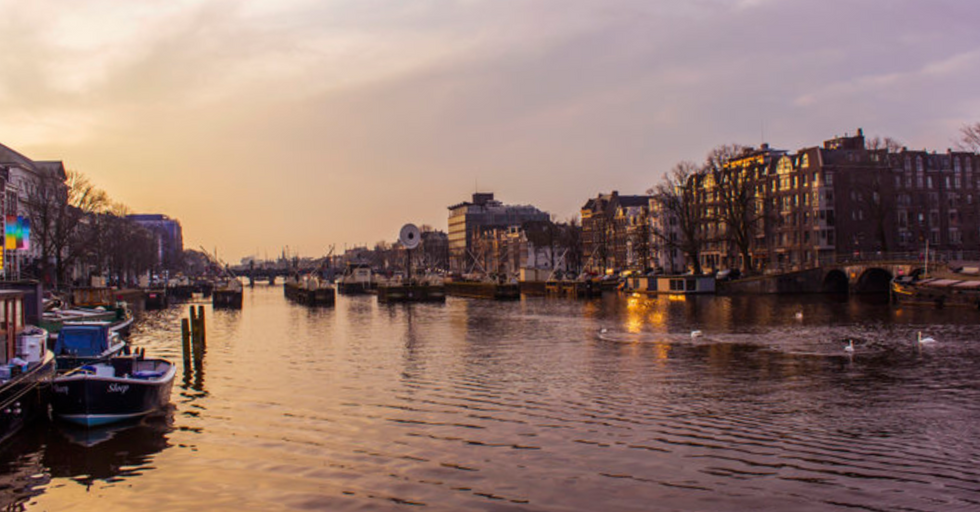Like most things in my life, my trip to Europe started as a joke that got taken seriously and went too far. By the time plane tickets were booked and hostels secured it was quite hard to tell my travel buddy I was semi-kidding when this whole thing started. But that joke is how I ended up pulling an all-nighter planning a trip through Amsterdam, Brussels, Munich, Vienna, Prague, and Berlin and also how I ended up touching down in The Netherlands just six months later.
1. Airfare can be cheaper than you think

A major deterrent before this trip, besides being far away from home in a foreign country, has been the cost of airfare and how expensive it seemed. However, while researching this trip I came across a site called STA Travel, a booking website that gives discounts to student travelers. It was really helpful when comparing prices and will actually give you a chart of days that it might be cheaper to fly if your travel plans are flexible.
Also, airfare can change in price depending on where you're flying to and from, so make a list of potential cities you want to visit if you're backpacking and see how plane ticket prices compare in each city. If you can map out a route that still takes you to each city you want to go with the cheapest plane tickets then you've got the start to a winning trip.
2. Hostels are your best resource

Youth hostels are a great place to stay and act as your home base for the trip. Plus, they can be really cheap if you pick the right one. Many hostels will also give you recommendations of fun things in the area. The hostel my friend and I stayed at in Vienna actually gave us a whole map of the city and directions on how to get around the next day.
Hostels also will provide breakfast at a cost, and I swear, it's worth the additional cost. These breakfasts are typically the best meal you'll have that day and buffet style so you can fuel up for a day of sightseeing. Plus, European breakfasts have an array of cheese and bread available—who would say no to that?
One last thing: if you think that you can be frugal and save money by taking overnight buses between countries, I'm speaking from experience on this one, DON'T DO IT. I promise you nothing is nicer than being able to have a place to put your backpack during the day and having a bed to sleep in at night. You might be saving some money by sleeping on a bus but it's going to be at the cost of your comfort.
3. Your backpack is more important than you think

Speaking of comfort, your backpack, if you are choosing to backpack for your trip, is key to being successful in your travels. When packing, keep in mind how heavy you're making it and how much you feel comfortable carrying around for 8+ hours every day. For the purposes of backpacking, less is more, so choose some basics when it comes to clothing that you can get away wearing multiple times without having to wash (this does not apply to socks) and pick those clothing items over your fancier garb. Also, deodorant is not optional to pack, you can make room for it.
When it comes to finding your pack, a good backpack is durable and made for this kind of thing. You can't just use your school backpack and think you'll be fine to travel. I recommend finding a backpack with padded straps that have steel wire in them, making them harder to cut if someone is trying to steal your bag. Also, try not to get a bag with many or any forward facing pockets so people aren't able to go into your bag without you knowing. And make sure your bag is waterproof because you really, really don't want everything you have to get wet if you get caught in the rain, which is almost inevitable.
4. Make sure the shoe fits

If you're one of those people that loves getting your steps in every day, then you're going to love backpacking. During this trip, I walked at least six miles every day and was really thankful I had a good pair of shoes which were a pair of Doc Martens I've had for over five years at this point. Needless to say, they were very broken in and comfortable to wear, plus they worked really well for the snowy cities.
If you're planning to go backpacking, make sure that your shoes are something you're willing to become one with like your backpack because again, you're going to be walking a lot for 8+ hours at a time. This is especially important because you never know when your friend is going to drag you up 30 flights of stairs at 10:00 AM to the top of a tower.
5. Trains, planes, buses, and more

One really convenient way to get around from country to country is to take buses. If you choose to travel by bus there are a lot of bus services that do international routes. One thing I learned, though, is that these buses will literally never be on time. They're going to be either very early or very very late. So I recommend getting to the station at least 15 minutes earlier than suggested and remaining calm if you think the bus isn't showing up. I promise it is, it's just coming from a different country to get you.
Also, subways are really useful ways to get around, just be aware that during midday it will get really crowded with students going to or coming from school. Another note is that subway systems there don't make you pay to access the platform, but you should still get a ticket because subway workers will sometimes get on to do a random ticket check and failing to have a ticket carries a heavy fine.
6. Passports to pass go

Here in the States, your driver's license is like an access card to any place you need ID. When you're traveling, that thing is basically useless and your passport becomes king. You're going to need your passport in a lot of situations that you wouldn't think about, like when checking into your hostel. Also, if you're traveling between countries on a bus, it might get stopped and you'll have to show police officers your passport and stamp of when you came into the country.
I recommend not doing what I did and having my passport buried in my backpack the first time I checked into a hostel. I had to dig it out and it was already past midnight so the guy at the front desk was not pleased. From there on out, I made sure to put my passport in an easier to access pocket on my bag that faced inwards so you could only get into it if the backpack was off. Have your passport handy, but only handy enough that you and you alone can access it. Whatever you do, don't lose that thing, or the rest of your trip is down the drain.
7. Comment dites-vous?

There's going to be a language barrier. And that's fine, just go with it. Honestly, even if you think you've got the language down from taking classes at school, nothing compares to having to communicate with a native speaker. Your foreign language skills might come in handy when it comes to getting around by being able to read street signs or understand a subway system, but besides that, be ready to have some interesting conversations.
The main thing is to keep calm about any gaps in language and make the best of it because after all, traveling is about meeting new people and experiencing new things, including awkward conversations.
8. Your trip is what you make of it

All in all, what I learned the most from my travels is that the experience is what you make of it. If you get stuck in the snow really early in the morning while being freezing cold, yes, that's really going to put a damper on things, but once you warm up and get a sandwich from a really nice Belgian lady in her deli, you're going to feel a lot better. There are going to be missteps, things that don't go to plan, places you want to go to that will be closed, and you're going to feel a little (or a lot) homesick. But it'll be fine, just take a deep breath and keep a clear head. Live in the moment and love the unique experience you're getting.




 Energetic dance performance under the spotlight.
Energetic dance performance under the spotlight. Taylor Swift in a purple coat, captivating the crowd on stage.
Taylor Swift in a purple coat, captivating the crowd on stage. Taylor Swift shines on stage in a sparkling outfit and boots.
Taylor Swift shines on stage in a sparkling outfit and boots. Taylor Swift and Phoebe Bridgers sharing a joyful duet on stage.
Taylor Swift and Phoebe Bridgers sharing a joyful duet on stage.













